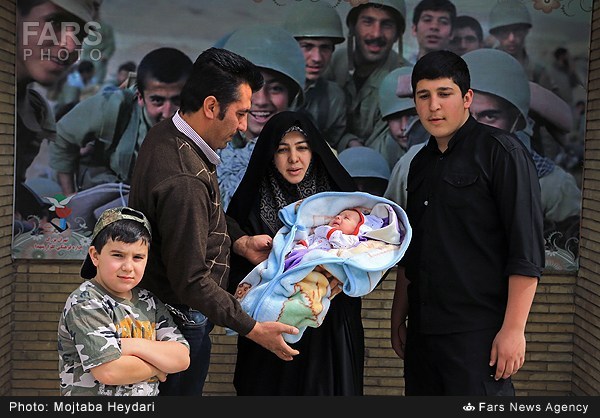 TEHRAN (Dispatches) — Leader of the Islamic Revolution Ayatollah Seyyed Ali Khamenei said the Iranian nation can best counter Western sanctions by strengthening its economy and rallied Iranians to exert "extraordinary efforts" to take their country forward.
TEHRAN (Dispatches) — Leader of the Islamic Revolution Ayatollah Seyyed Ali Khamenei said the Iranian nation can best counter Western sanctions by strengthening its economy and rallied Iranians to exert "extraordinary efforts" to take their country forward.
Ayatollah Khamenei' remarks came in his annual speech for the Persian New Year, Nowruz.
The Leader in Mashhad, in northeastern Iran, and dedicated 1393 as the year of "economy and culture". Iranians, Ayatollah Khamenei said, should not wait for the sanctions to be lifted but work to build a stronger economy to "reduce vulnerability".
Iran has been hit hard by the U.S.-led sanctions that were imposed over its nuclear program.
An interim nuclear deal reached in November with world powers has eased some sanctions, but the core remains in place — including measures targeting Iran's oil exports, the pillar of its economy.
Iran and the six world powers are now working on a comprehensive agreement envisaging long-term limits on the nuclear programs in exchange for an end to the sanctions.
Ayatollah Khamenei, who has final say on all state matters in Iran, has called the sanctions "a full-fledged economic war" on the country and last month ordered the government to create an "economy of resistance" to counter the measures.
The project involves efforts to diversify Iran's exports, reduce dependence on sales of raw materials and promote knowledge-based high-tech industries.
"If a nation is not strong, the world's extortionists will extort from it, insult it and if they can, they will trample on it," Ayatollah Khamenei said in his speech, broadcast live on national television. "If a nation doesn't become strong, it will be bullied by others."
Ayatollah Khamenei said the priority is for Iranians to make their economy immune to outside pressures. "There is need for extraordinary efforts to bring the country's economy into such a state that decision by others elsewhere in the world can't influence it."
"If we have a determined will and join hands, we can help our economy prosper," the Leader said, urging Iranians to buy domestic products.
Waiting for "the enemy" to lift the sanctions is a road "to hell", the Leader stressed — and Iranians need to "look to what we can do ourselves".
The Leader meanwhile agreed to pardon or reduce the sentences of 920 people, the official IRNA news agency reported, in a customary gesture to mark the anniversary of the Islamic Republic.
It was the second large-scale pardon this year after Iran's paramount Leader pardoned or eased the sentences of 878 people in honor of the Prophet Muhammad's birthday in January.
Iran meanwhile slammed a recent UN human rights resolution against the country as an “unconstructive, politically motivated and double-standard” move that “undermines international human rights mechanisms”.
The counties that drafted the resolution have turned a blind eye to the positive steps taken by Iran in fulfilling its obligations as well as Tehran’s constructive cooperation with international organizations, Foreign Ministry spokeswoman Marzieh Afkham said in a statement.
Afkham’s remarks came in reaction to a resolution adopted against Iran in the 25th session of the UN Human Rights Council in Geneva.
The anti-Iran resolution was passed by the UN council 21-9 with 16 abstentions while one country was absent in the voting session.
She added that the resolution is based on “political interests” of certain countries and lacks “legitimacy”.
“It is regrettable that the sponsors of the resolution are silent and indifferent toward the gross violation of the most basic rights of the Palestinian people, and the fate of innocent people taken hostage by terrorist groups as well as citizens of different countries who lose their lives every day under the pretext of fight against terrorism,” Afkham said.
She added that Iran aims to continue its “positive interaction” with international human rights bodies “in a realistic way”.
Iran’s ambassador to the United Nations Headquarters in Geneva also blasted the resolution as sign of a “dangerous and concerning” course of action.
Ambassador Mohsen Naziri-Asl emphasized that the effort of a few countries that drafted the resolution is effectively intended to “impose their own standards on others and further widen the gap between countries”.

















